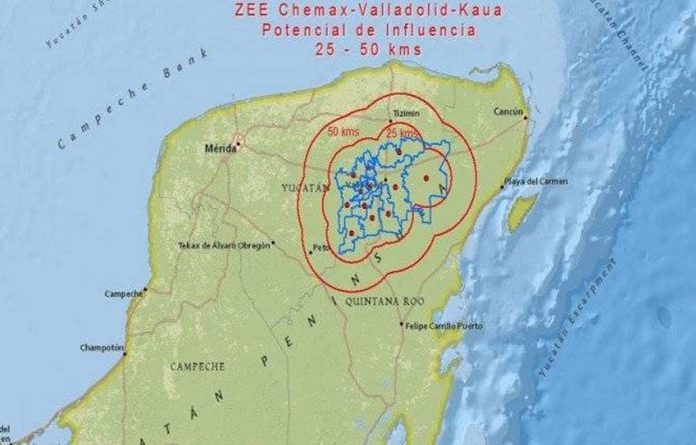Yucatán would become the first state in Mexico to boast a special indigenous economic zone (ZEEI) under a proposal promoted by two economists, a dozen mayors and the governor.
Jesús Bastarrachea Cabrera, one of two original proponents of the initiative, told the newspaper El Economista that the ZEEI would encompass 12 municipalities in the east of the state with Valladolid serving as the zone’s commercial center.
All 12 have high indigenous populations and six of them are among the 10 poorest in Yucatán, according to data from Coneval, a federal agency that measures poverty levels.
Bastarrachea acknowledged that one of the seven special economic zones (SEZs) created by decree by President Peña Nieto is located in Progreso, Yucatán, but contended that the east of the state was too far away to see any significant benefits from it.
“We’re talking about a distance of 200 kilometers, it’s another region, it’s the most marginalized area of the state of Yucatán, located exactly halfway on the highway between Mérida and Cancún . . .” he said.
Bastarrachea explained that the main cause of poverty in the 12 municipalities is a lack of employment opportunities, a situation he believes the ZEEI proposal can change.
“The idea is to attract large, international pharmaceutical research centers with tax incentives and the [local] flora . . . The objective is for scientific companies to set up and use the Cancún and Chichén Itzá airports to transport their products and personnel,” he said.
Bastarrachea added that a “complementary focus” of the region would be traditional Mayan herbal medicine.
“. . . The goal would be to supply [medicinal plants] to the west coast of the United States,” he said.
“The proposal has been well-received by [business] chambers . . . [including] the Business Coordinating Council [CCE], the National Chamber for Industrial Transformation [Canacintra] and the Mexican Employers Federation [Coparmex],” Bastarrachea added.
The economist said that members of the incoming federal government, including future finance secretary Carlos Urzúa, are also aware of the proposal but explained that in order for it to become reality, changes would have to be made to the Federal Law on Special Economic Zones.
The law as it stands states that only one SEZ can exist in any single state. In addition, it stipulates that states where any new SEZ is created must be among the 10 poorest in the country whereas Yucatán is now the 12th poorest of Mexico’s 32 entities.
“. . . The Secretariat of Finance and Public Credit [SHCP] would tell us that we don’t qualify,” Bastarrachea conceded before suggesting an alternative qualification route.
“We want the Valladolid region to join [the existing SEZs] but if we follow the process currently [established] by law we wouldn’t be included because we’re not in one of the poorest states anymore, we want a ranking at the municipal level, a regional level so that there is an opportunity . . . to be included.”
Next month, Bastarrachea said, a letter signed by the 12 mayors and Governor Mauricio Vila will be presented to the new government to formally propose the ZEEI idea.
The municipalities proposed for inclusion are Tixcacalcupul, Chichimilá, Uayma, Chikindzonot, Tekom, Chankom, Chemax, Kaua, Temozón, Cuncunul, Tinum and Valladolid.
Source: El Economista (sp)
